Tankless vs Tank Water Heater: Which is Right for Your Berkeley Home?
Are you having trouble deciding whether to get a tank or tankless water heater for your home? Don't worry, we've got you covered. Our in-depth guide covers all the factors you need to consider - from cost and maintenance to installation and longevity. You'll walk away with the knowledge needed to confidently choose the best option for your needs. Need more help? Just give us a call, we're here for you."

What is a storage tank water heater and how it works?
Dependable and cost-effective, storage tank water heaters are a popular choice for both homes and businesses. With heating elements or burners to warm the water and insulation to prevent heat loss, these tanks store water that can be easily accessed through a faucet. Despite the rise of tankless options, storage tank water heaters remain a reliable and trusted solution.


Benefits of a tank water heater
Tank water heaters offer several benefits:
Save money on installation and upfront costs compared to tankless models.
Reliably supply your home with hot water with their larger storage capacity.
Experience fewer malfunctions than tankless options.
Keep maintenance costs low, saving you money on repairs in the long-run.
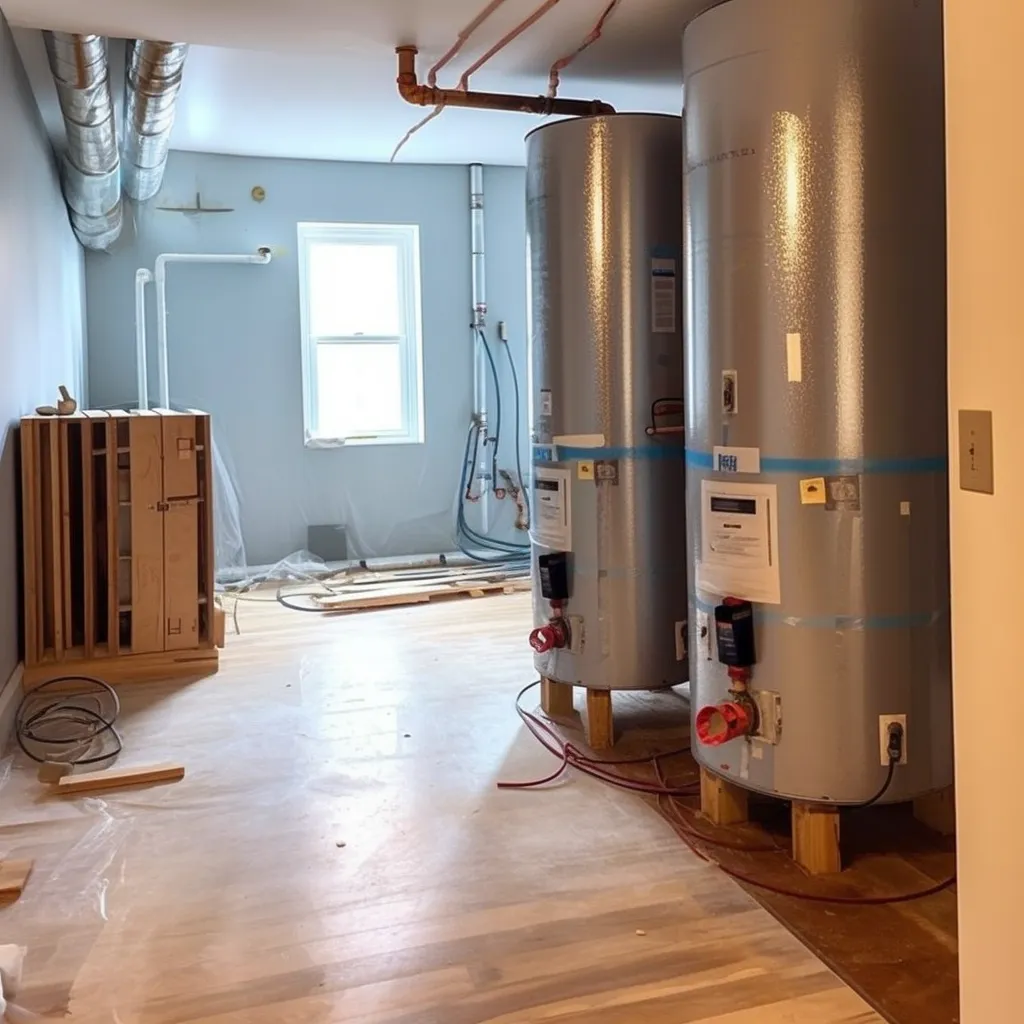
What are the drawbacks of a tank water heater?
Tank water heaters come with several disadvantages:
If you live in a small space, skip tank water heaters. They take up too much room. Plus, older models can send your utility bill through the roof.
Don't forget about this: typical tank heaters last a measly 8-12 years. But with tankless systems, you'll get up to double that lifespan.
But what about running out of hot water? Yes, that's a real pain. And with a tank heater, you'll spend hours waiting for a refill.


What is a tankless water heater and how does it work?
Say goodbye to bulky storage tanks and hello to instant hot water with tankless heaters. These innovative appliances heat the water on demand, as it flows through the unit. No more waiting for hot water to start your day or enjoy a relaxing shower. Here's how it works: once you turn on the hot water, the cold water passes through the heat exchanger and comes out hot from the faucet. Upgrade your home with a tankless hot water heater for convenience and efficiency.

What are the benefits of a tankless water heater?
Tankless water heaters are now a popular option for homeowners nationwide due to their manifold benefits:
With tankless water heaters, you get premium performance and huge savings! These energy-efficient units are a popular choice for homeowners nationwide, thanks to their many benefits.
Unlike traditional models, tankless water heaters provide an endless supply of hot water on demand while saving precious space in your home. That's because they don't store hot water like traditional tank water heaters.
They're highly durable, lasting up to 20 years compared to just 8-12 with traditional models.


What are the disadvantages of a tankless water heater?
Tankless water heaters come with a few downsides:
Investment costs for buying and installing tankless water heaters can be pricier than traditional models.
Keeping your tankless water heater in good shape requires more maintenance, which can be costly in the long run.
Getting the right tankless water heater to meet your home's needs is crucial to ensure it works properly when high demand strikes.
Some units struggle to keep pace with heavy usage, which can lead to issues like inconsistent temperature regulation.
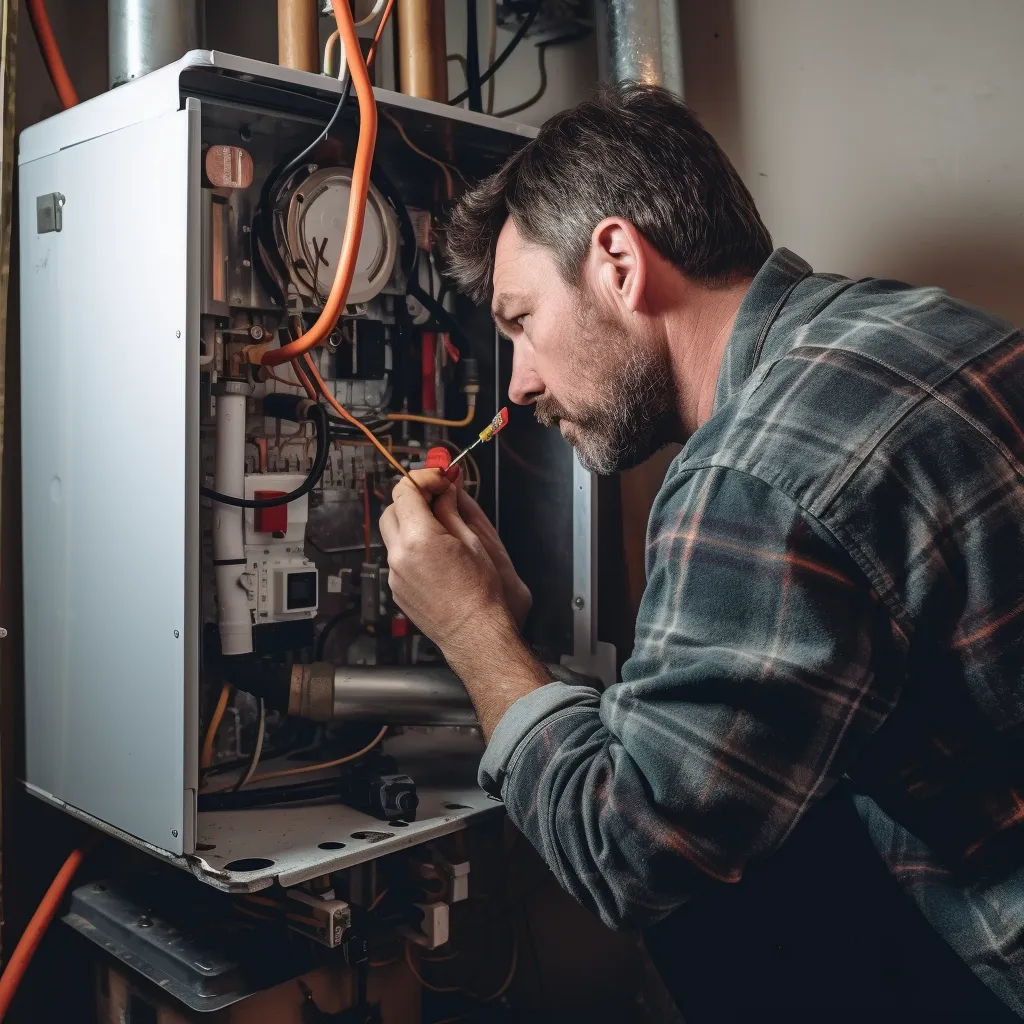
Are storage tank water heaters energy-efficient?
Say goodbye to energy-hogging traditional water heaters! Older models use a ton of energy by constantly heating water, even when it's not needed. But not anymore! The latest tank models offer top-notch insulation and heating features, making them a much more efficient and energy-saving appliance. While they may not be the absolute greenest option, they're still a reliable and practical choice for many households. Upgrade your home with a more sustainable water heating solution today!
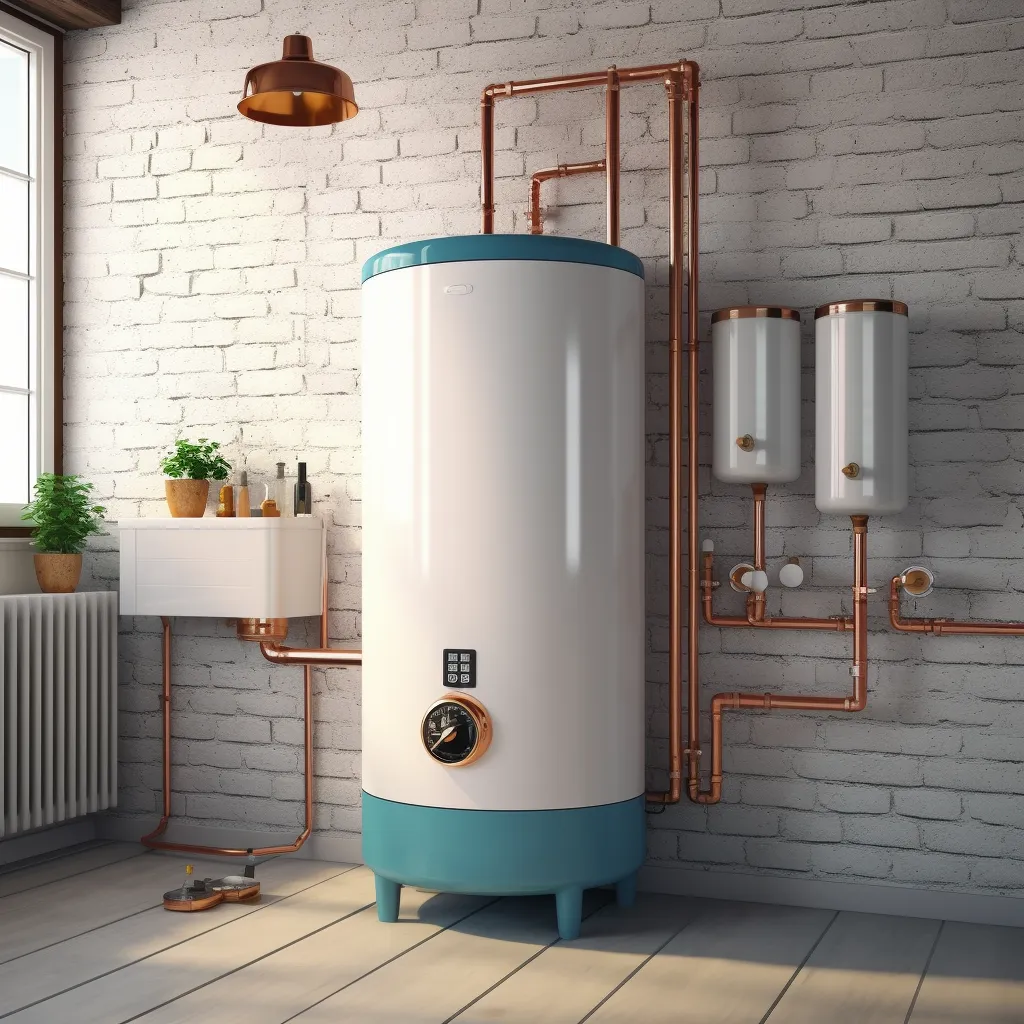
Are tankless water heaters energy-efficient?
Choose a tankless water heater for your home and enjoy the benefits of energy efficiency and affordability. Studies have found that tankless systems can save up to 34% more energy than traditional tank-based models, which constantly heat and expend energy on a large volume of water. Tankless systems only heat water when you need it, which means they work more efficiently to maintain consistent water temperature. Plus, they're more durable than traditional heaters, providing long-term energy and cost savings for your household.

Cost to buy and install
a tank water heater
Discovering the perfect water heater for your home can be a challenging task. Tank water heaters are available in an array of sizes and types, and pricing may fluctuate depending on these factors. Although, for a regular model, the cost usually starts at $500 and goes up to $2,000. In addition, installation expenses can pile up to about $1,500. These rates may escalate more if you add extra features. It's essential to keep in mind that electricity or gas will be required when installing the heater, and there might be a need for specific plumbing conditions. Finally, ensure that the size you choose suits your household needs and provides enough hot water for everyone.

Cost to buy and install
a tankless water heater
Save on your monthly energy bill by switching to a tankless water heater. While they may have a higher upfront cost of $1,000 to $3,000, the long-term cost savings are worth it. Installation can range from $500 to $2,000 based on your home's plumbing system and labor rates. Unlike traditional models, tankless units operate without a storage tank, meaning you no longer have to wait for a tank to heat up before using hot water. However, it's important to note that tankless units require a large gas line and electricity source in order to operate efficiently. Make sure to choose the right sized unit based on your household's hot water needs to maximize efficiency and savings.


Common storage tank water heater maintenance issues
Don't let common maintenance issues with your storage tank water heater become a headache! Keep an eye out for these four potential problems:
Leaking Tank: Avoid costly repairs and water damage by addressing leaks promptly.
Corrosion: Keep your system operating efficiently and avoid expensive repairs by monitoring for corrosion.
Sediment Buildup: Reduce wear and tear on plumbing fixtures and maintain efficient heating by keeping sediment buildup in check.
Improper Installation: Avoid hazardous gas leaks and electrical issues by ensuring your tank is properly installed.

Common tankless water heater maintenance issues
Don't overlook maintenance for your tankless water heater:
Sediment buildup, like traditional tanks, can hinder your system's efficiency and cause damage.
Mineral-rich water wreaks havoc on your heater, creating buildup and decreasing performance and lifespan.
Make sure your home can handle the extra power needed for a tankless system since they require more electricity than traditional heaters.
Note that the larger gas line needed by tankless water heaters must be secure and free of leaks.


What is the lifespan of a tank water heater?
How long does a tank water heater typically last? It's hard to say, as the lifespan can vary based on factors like usage frequency, maintenance, and quality. On average, you can expect 8-12 years of use. But if you start seeing signs like rust-colored water, leaks, or unusual sounds coming from the unit, it might be time to call in an expert for guidance. Don't wait until it's too late!
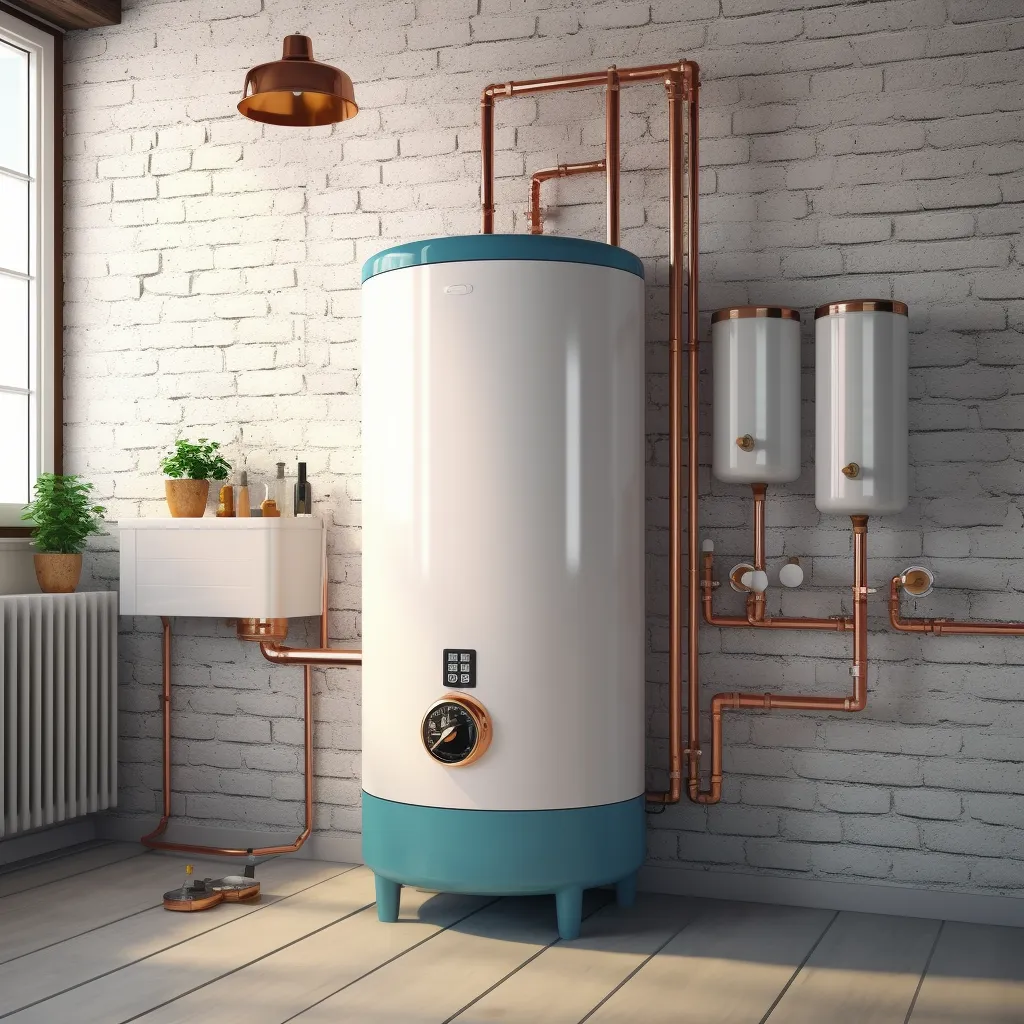
What is the lifespan
of a tankless water heater?
Get cost-effective, long-term hot water with a tankless water heater. With proper care, you can enjoy an average lifespan of 15-20 years. Their popularity is on the rise and even more improvements are expected. You'll enjoy immediate benefits and long-term savings. Invest in peace of mind with a tankless water heater today.
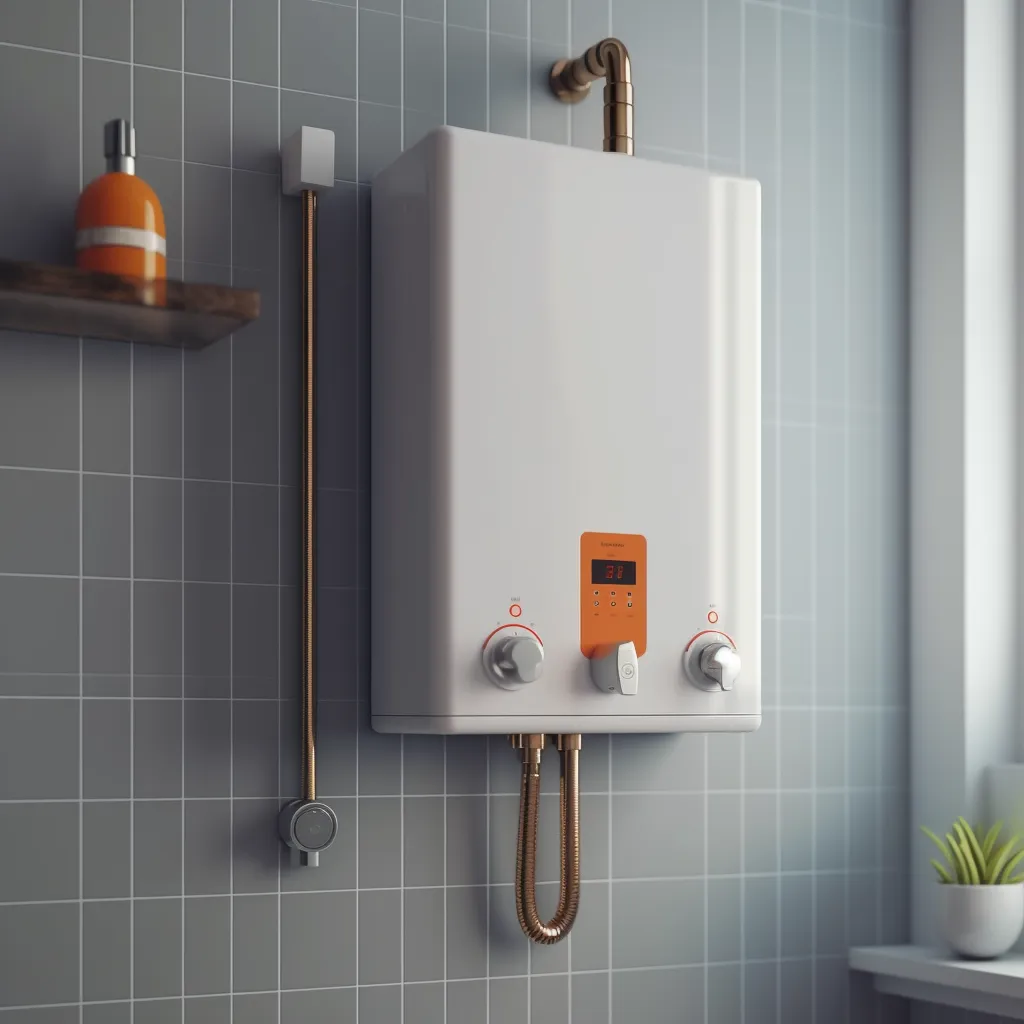
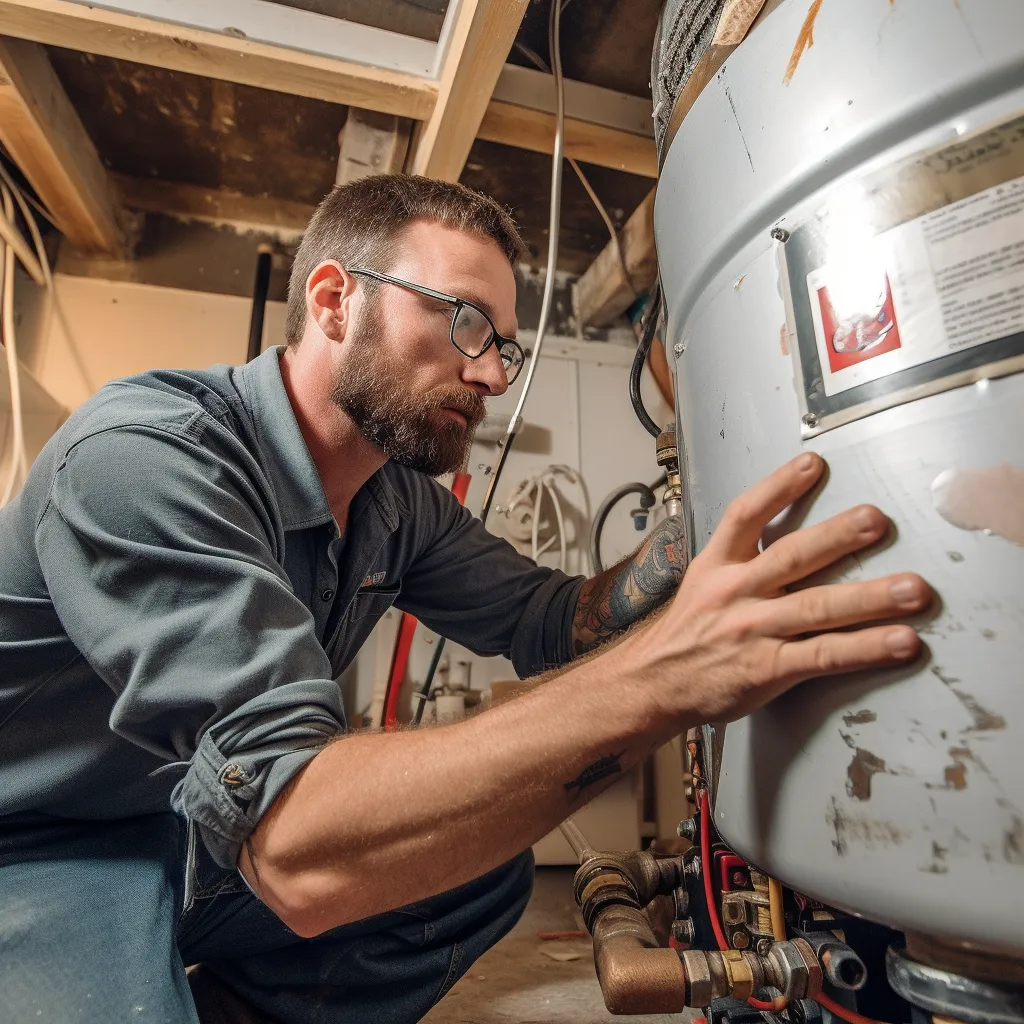
Gas vs electric water heaters
Gas or electric? Which water heater is the best choice for you? It all comes down to the pros and cons. Gas models heat water faster and have lower operating costs, but need a gas line and maintenance. Electric water heaters are simpler to install and maintain, but they may cost more to run and take longer to heat water. The ultimate decision comes down to your unique needs and priorities.
How to decide if a tankless or a tank water heater
is right for you
Before deciding if a tankless or tank water heater is right for you, there are several factors to consider:

Budget: Be prepared for tankless water heaters to be pricier than traditional tanks. Don't forget to factor in installation costs.
Usage Requirements: If you need hot water on demand, a tankless water heater is the way to go. But if your usage is minimal, a tank water heater may be sufficient.
Energy Efficiency: Take a look at the eco-friendly models of both types of water heaters to help you make an informed decision.
Climate: If you live in an area with extreme temperatures, a tankless water heater may be best. But if you are in a milder climate, a traditional tank heater could be adequate.
Space: If you're strapped for room, a tankless water heater might work better since it requires less space than a bulky tank.


Is it important to hire a licensed professional to install a new water heater?
Ensure a safe and stress-free water heater installation by hiring a licensed professional who can recommend the appropriate type and size based on building codes. Plus, rest easy knowing potential hazards can be avoided. Trust us, the peace of mind is priceless.

Researching tankless vs tank water heaters
is important
Choosing the right water heater for your home can be challenging. Should you go for a tank or a tankless one? The answer depends on your needs, budget, and installation requirements. Take the time to carefully evaluate these factors before making a decision. Upgrading to a new water heater can be a game-changer, lowering your energy bills and providing hot water on demand. To make the best choice, be sure to research different models and their energy efficiency ratings. Good luck!
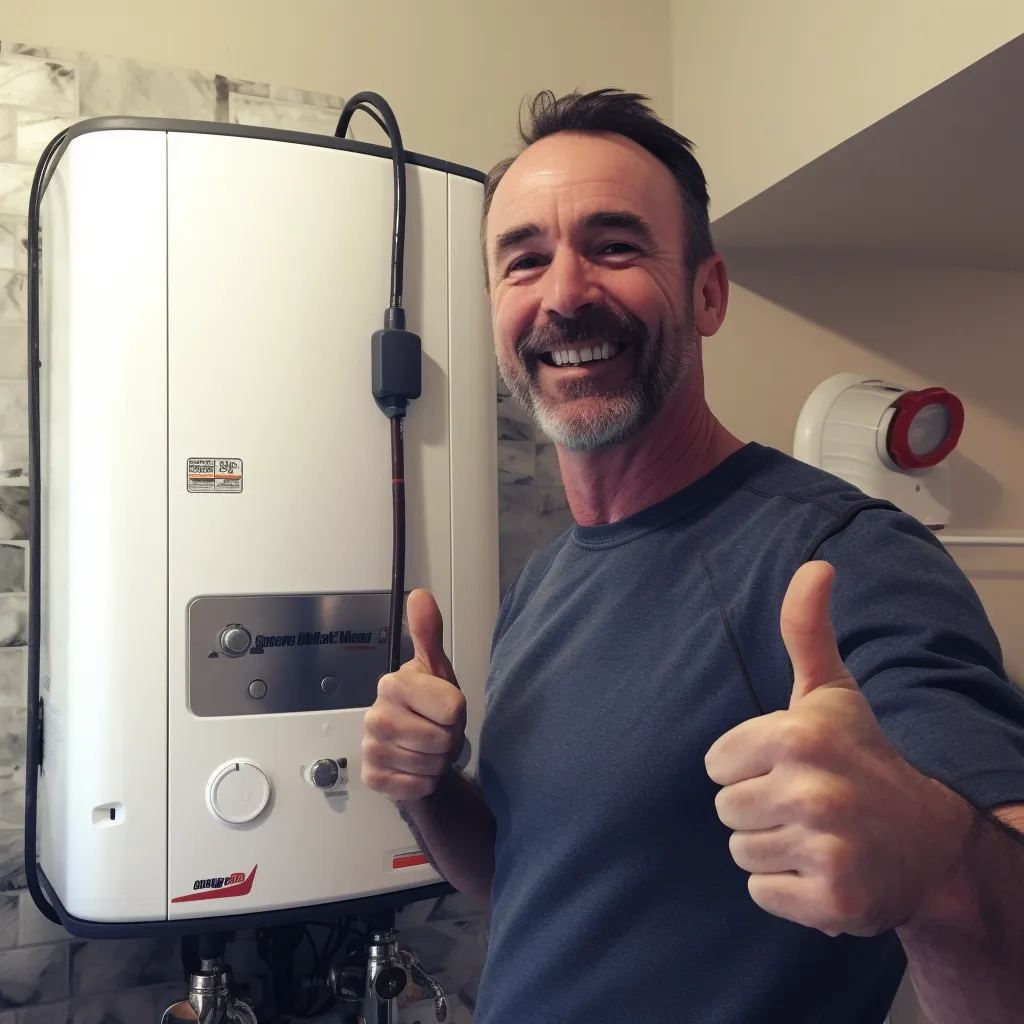
Contact Us
GET IN FULL TOUCH
PHONE: (510) 345-2489
EMAIL:
john@waterheaterberkeley.com
AquaSaver Water Heaters
Berkeley, CA 94702
